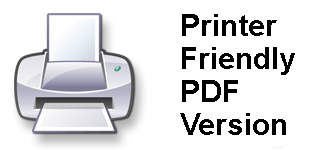There has been some discussion over the risk of an association between non-steroidal anti-inflammatory dugs (NSAIDs) and a number of adverse side effects.
These adverse effects include the following:
-
-
- hypertension (raised blood pressure)
- thrombo-embolism (a blood clot that develops and breaks free to flow with the blood around the circulation)
A thrombo-embolism can block fine blood vessels and result in a stroke, blockage of small vessels in the kidneys or liver. The risk varies between various NSAID medications and is higher with increased dose.
NSAIDs are very useful for the treatment of inflammatory diseases including dental pain including pulpitis (inflammation of the pulp of a tooth), arthritis, gout and for the reduction of a fever in children and adults.
Like many medicines, greater effectiveness of certain drugs is unfortunately often associated with greater risk of unwanted side effects. The drugs grouped as NSAIDs are associated with a range of potential adverse effects including irritation to the gastric lining, stomach cramps, gastric bleeding and ulceration, damage resulting in the kidneys or liver and the possible development of a thrombo-embolism and consequently the occurrence of a stroke. However, it must be pointed out that the vast majority of patients are not troubled by adverse reactions when taking a relatively short course of NSAID medication, as is the case around the time of dental surgery.
Of the common NSAIDs used by dentists, Voltarin (also known as Diclofenac) carries the highest risk of cardio-vascular side effects such as thrombo-embolism particularly with doses above 150mg per day. High dose Ibuprofen over 2,400mg per day is also associated with a significantly raised risk of stroke and heart attack. However, the usual dose prescribed by a dentist would be 400mg three times a day (total 1,600mg per day). Low dose Ibuprofen up to 1,200mg per day carries little or no risk.
The NSAID that appears to carry the least risk of adverse effects is Naproxen, as used by Dr Priestland for his surgical patients. He normally prescribed 500mg three times a day after surgery to minimise swelling and help control the post-operative discomfort.
Patients who are taking low dose daily Aspirin 100mg for its cardio-protective effect against thrombus formation in the heart vessels, should be aware that if Naproxen is taken at the same time as the Aspirin, they will compete for the same drug receptors and therefore there will be a reduced protective effect of the Aspirin. These patients should take their Aspirin first and then delay taking their Naproxen for an hour. In this way the benefits of both drugs are achieved.
There are ongoing medical research studies to better identify the degree of risk associated with a number of different NSAID medications.
Contact the friendly team at NQ Surgical Dentistry today on (07) 4725 1656 or call in to see us at 183 Kings Rd, Pimlico QLD 4812
